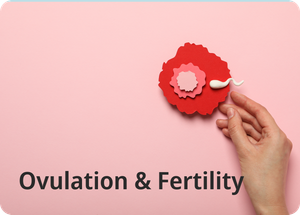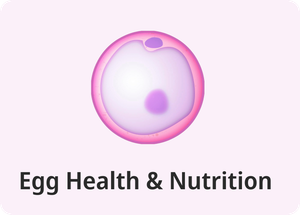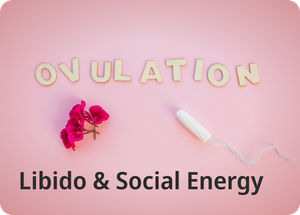“Thousands have lived without love, not one without water.” – W. H. Auden
The luteal phase is the second half of the menstrual cycle, beginning after ovulation and lasting until the start of menstruation. This phase typically lasts about 12 to 14 days. During this time, levels of progesterone rise, while estrogen falls, creating shifts that influence mood, energy, digestion, and water balance in the body.
Many women notice physical changes in the luteal phase, such as bloating, breast tenderness, mood fluctuations, and food cravings. While these symptoms are common, one of the most overlooked yet effective ways to manage them is through proper hydration. Water supports almost every bodily function, and during the luteal phase, the body’s fluid needs can be higher. Simple hydration habits can ease discomfort and promote overall wellness.
Progesterone, the dominant hormone in the luteal phase, has a direct impact on water balance. Rising progesterone can cause the body to hold on to sodium and water, leading to bloating and a feeling of heaviness. According to NHS guidance, reducing salt intake and drinking enough fluids can help the kidneys regulate this balance.
Progesterone also slows down digestion, which is why some women feel constipated in the days before their period. Proper hydration, along with fiber intake, helps soften stools and support regular bowel movements.
Mild dehydration can worsen fatigue, headaches, and difficulty concentrating. Research published in PubMed Central shows that even a small drop in hydration levels can negatively affect mood and cognition. Since the luteal phase is already associated with irritability and mood swings, drinking enough fluids becomes even more important.
Sometimes, thirst can be mistaken for hunger. Drinking water regularly may reduce unnecessary snacking and balance appetite, which is often stronger in the luteal phase due to increased metabolic rate.
Sipping water throughout the day is more effective than drinking large amounts in one sitting. This helps the body absorb fluids gradually and prevents the uncomfortable bloated feeling that many women already experience in the luteal phase.
The NHS recommends 6–8 glasses (about 1.5–2 liters) of water daily. This may vary depending on activity levels, climate, and individual needs. Listening to your body’s thirst signals is key, but setting a daily target can help you stay consistent.
Foods rich in water can contribute to hydration. Cucumbers, oranges, watermelon, strawberries, and lettuce are refreshing options. Soups and herbal teas also add to fluid intake while providing comfort.
Drinking plain water is important, but electrolytes such as potassium and magnesium also help regulate fluid balance. Foods like bananas, spinach, yogurt, and coconut water provide natural electrolytes without excess sugar.
Coffee and strong tea can act as mild diuretics, increasing urine output. While moderate caffeine is fine, excessive amounts may worsen dehydration and heighten PMS symptoms such as irritability and sleep problems. Switching to green tea or herbal teas like chamomile and peppermint can be soothing during this phase.
High salt intake can worsen water retention and bloating. Choosing home-cooked meals with fresh vegetables, whole grains, and lean proteins helps maintain a healthy balance of sodium and water.
A glass of water in the morning helps kickstart metabolism and digestion. Drinking a small amount before bedtime keeps the body hydrated overnight without disrupting sleep with frequent bathroom visits.
The luteal phase can sometimes make workouts feel more tiring. Drinking water before and after exercise supports muscle recovery, prevents cramps, and keeps energy levels steady.
These beverages can be calming while also contributing to fluid intake. However, it is best to avoid very sugary drinks, which can spike blood sugar and worsen fatigue.
These habits not only support hydration but also reduce stress, which can be high during the luteal phase.
Mild bloating and changes in hydration are normal in the luteal phase. However, if you experience extreme water retention, very severe constipation, or symptoms of premenstrual dysphoric disorder (PMDD), it is important to consult a healthcare professional. According to NHS advice, keeping a menstrual health diary can help in identifying patterns and guiding treatment.
The luteal phase can bring challenges such as bloating, fatigue, constipation, and mood changes. Staying hydrated is one of the simplest yet most powerful ways to ease these symptoms. Water supports digestion, reduces bloating, maintains mood stability, and promotes energy balance.
By making hydration a consistent habit, women can move through the luteal phase with greater comfort and resilience.
About PeriodSakhi
PeriodSakhi is your trusted companion for understanding your menstrual health. With easy-to-use tools, it helps you track your periods, ovulation, fertility, moods, and symptoms, while providing insights into your overall reproductive and hormonal health. PeriodSakhi also serves as a supportive online community where women can share experiences, find reliable information, and access expert-backed guidance on menstrual health, PCOS, pregnancy, lifestyle, and more.
Disclaimer
The views, thoughts, and opinions expressed in this article/blog are solely those of the author and do not necessarily reflect the views of PeriodSakhi. Any omissions, errors, or inaccuracies are the responsibility of the author. PeriodSakhi assumes no liability or responsibility for any content presented. Always consult a qualified medical professional for specific advice related to menstrual health, fertility, pregnancy, or related conditions.
Start the conversation
No comments yet. Start the conversation by leaving the first comment!




